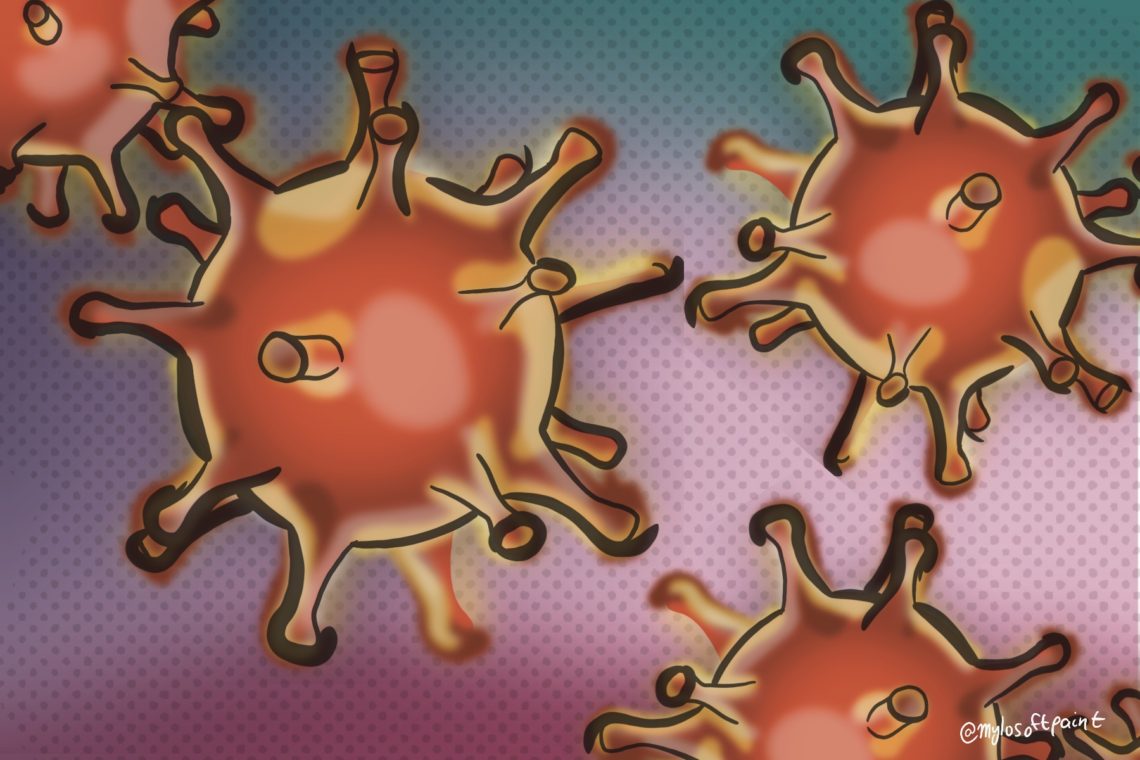Written by: Brandi Berry, RN (she/they).
Edited by: Shelby MacGregor (she/her).
It can feel daunting to discuss a possible HSV diagnosis with patients. This is because despite usually being a mild, and highly manageable condition, there exists a pervasive stigma attached to HSV infection. In the initial period after a diagnosis, a patient can feel a broad spectrum of emotions including anger, grief, sadness, and guilt. Engaged, trauma-informed, and patient-centered counselling is one way to manage the valid emotional experiences that can follow HSV diagnosis. Data has shown that with proper supportive counselling, patients are more likely to inform partners, which is beneficial from a public health standpoint (1,2). Beyond that, a supported patient is likely to return to you with other health problems, will feel more empowered in their lives and in their health, and a strong care alliance can be established.
The aims of this article are to provide some introductory tips for healthcare providers that work with people newly diagnosed or currently living with herpes simplex virus (HSV). In particular, this article provides insight into ways to create an accommodating, safe space for people in the period directly before (ie testing) and after HSV diagnosis. This period of time after diagnosis is likely when patients need the most support and guidance from a medical stand-point, not only to begin to manage their HSV infection for better quality of life, but also to begin to process the new reality of living with a chronic infection. At some point in the process of reading this article, I’d call on healthcare providers to reflect on their own practice and their own opinions of HSV infection. Do you regularly use stigmatizing language – even if you don’t mean to? When patients are distressed, do you have the necessary skills to counsel them while also making space for your own self-care and reflection afterwards? We all bring unconscious behaviours into our practice, which is unavoidable – but we must make the move towards unpacking and correcting these behaviours as a professional responsibility to our patients.
We all bring unconscious behaviours into our practice, which is unavoidable – but we must make the move towards unpacking and correcting these behaviours as a professional responsibility to our patients.
Having HSV does not make a person less desirable, less worthy, less lovable, or “dirty”. The intense stigma associated with sexually transmitted infections (STI’s), and particularly HSV, has created a lot of harm. Consider what language you have used in your practice and how this could impact your patients’ experience of their diagnosis. For example, “clean tests,” “permanent STI,” “infected with herpes.” These are all easy changes to “negative tests,” “chronic/recurrent infection,” and “living with herpes.” By changing language in everyday practice scenarios, you are shifting to a wellness focused model of care that is more supportive of the people who access your healthcare services. For people newly diagnosed with HSV, hearing language that is wellness focussed and does not perpetuate the stigma of living with the virus can be revolutionary in how they live with and manage their diagnosis.
A herpes diagnosis can be very emotionally upsetting. Although we are trained to be sources of information, someone in a heightened emotional state may not be able to receive and process what we are telling them. Validate feelings before moving towards education. If diagnosis occurs during an acute outbreak, pain and discomfort from blisters can also impact ability to learn about HSV. If your patient seems too overwhelmed, consider booking a follow-up appointment to revisit the diagnosis/management. Give key points to patients (avoiding sex during acute outbreaks, antiviral therapy, rest), and offer information for a patient to review on their own time prior to the follow-up appointment if they are open to it.
Herpes is not a reportable sexually transmitted infection, which means patients do not have to disclose to sexual contacts nor do contact tracing. If a patient currently has sexual partner(s), it is best if they are notified so they can also make informed sexual choices. Remember that disclosure may not always be the safest or best option for the patient depending on their relationship. As a medical contact, a patient may prefer to disclose to partners in-office with your support. Your patients’ partner(s) may benefit from testing as well, to determine if they too have HSV. If they are asymptomatic, serological tests can be completed. Other sexual health screening tests are also beneficial for both partners, particularly for HIV. In HSV/HIV co-infection, daily HSV suppressive therapy may not reduce risk of transmission (3).
Remind your patients: people with herpes still have fulfilling, pleasurable sex lives, they can still have children if they choose to, they will not always be as uncomfortable as during an acute outbreak. Herpes is common, and recurrences and symptoms decrease with time. People with herpes live diverse lives, and although a diagnosis is very painful right now, you are there to support them.
Engaged, trauma-informed, and patient-centered counselling is one way to manage the valid emotional experiences that can follow HSV diagnosis.
When HSV is diagnosed there can be questions about infidelity in long-term closed relationships. Both forms of herpes can lay dormant in the nervous system for several months or years, and outbreaks can be misdiagnosed as yeast infections/boils/ingrown hairs, or even acne for cold sores around the mouth. Outbreaks can be triggered by stress, certain foods, or hormonal changes. Bottom line: there are many ways an acute episode happens, and many times it is not due to infidelity. Partners who have cold sores could not have learned or been aware that they can be transmitted to the genitals. Providing time to process what could have been the trigger for the outbreak that led to the diagnosis can be very helpful in managing future outbreaks.
Antiviral suppressive therapy can prevent some transmission between partners if taken regularly. The patient can decide what is best for their lives. Informing partners and making decisions to prevent transmission, like suppressive therapy, can greatly reduce the risk of transmission. While condom usage is beneficial for sexual health in general, including in reducing some risk of HSV transmission, patients should be informed that condoms do not provide complete protection.
Although healthcare providers as individuals can uphold equitable, trauma-informed practices, healthcare systems can be volatile spaces for particular communities of people. In particular, sexual healthcare can already be difficult to access due to stigma surrounding sexual wellness, or lack of access to services in rural or remote communities. Hospitals or doctors’ offices may be the only place to access testing, and patients may worry about being a “burden” or being stigmatized in a non-specialized environment. Healthcare can be difficult to access for People of Colour, Indigenous People, sex workers, disabled people, or members of the 2SLGBTQIA+ community. Health professionals need to do better, not just for those diagnosed with HSV, but for the many communities who bear the burden of stigma.
There are many valid emotions that can arise following a HSV diagnosis. These emotions can be even more complicated for folks that may have had prior trauma accessing medical services, or for communities of people who face more systemic barriers when accessing healthcare. In diagnostic counselling, center the people you are with and their needs in the moment before moving on to education. Be prepared with the facts about managing HSV, and be ready to dispel common myths. Reminding folks that HSV is a common, manageable condition that many people live with can be helpful in the initial post-diagnostic interview.
References:
1. Rietmeijer C. A. Risk reduction counselling for prevention of sexually transmitted infections: how it works and how to make it work. Sexually transmitted infections, 2007, 83(1), 2–9. https://doi.org/10.1136/sti.2006.017319
2. Melville, J., Sniffen, S., Crosby, R., Salazar, L., Whittington, W., Dithmer-Schreck, D., DiClemente, R., & Wald, A. Psychosocial impact of serological diagnosis of herpes simplex virus type 2: a qualitative assessment. Sexually transmitted infections, 2003, 79(4), 280–285.
3. Smith, C.R, Pogany, L., Auguste, U., Steben, M., & Lau, T.T.Y. Does suppressive antiviral therapy for herpes simplex virus prevent transmission in an HIV-positive population? A systematic review. Canada communicable disease report, 2016, 42(2), 37-44.



